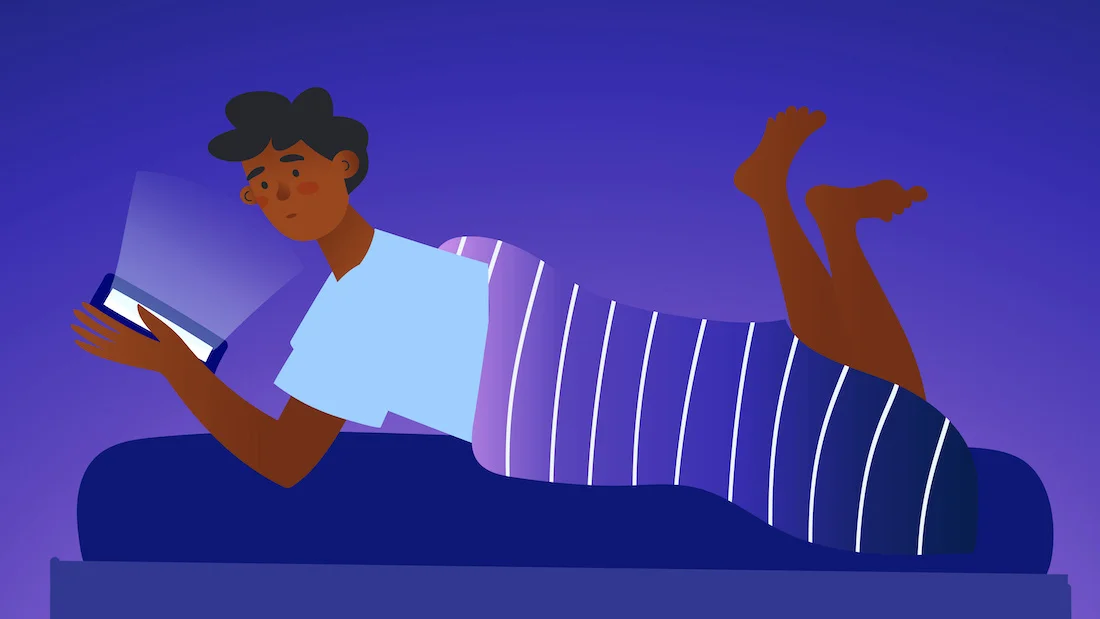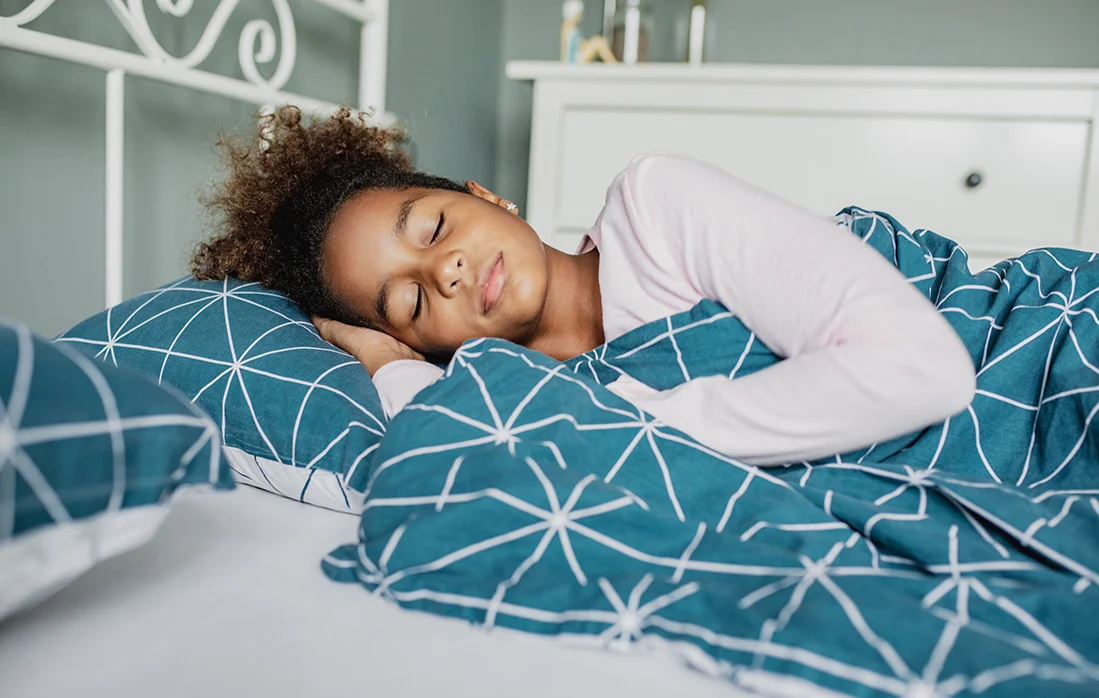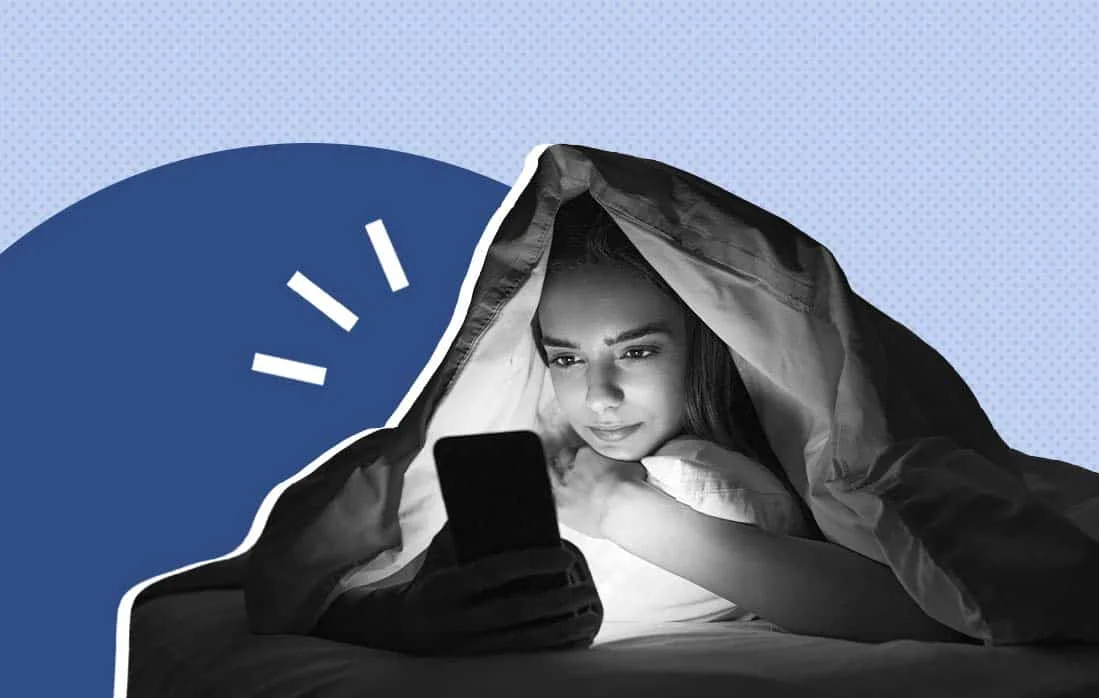
Self-care, sleep hygiene, prioritizing rest, and early bedtimes have gained traction in recent years, particularly among young adults of Gen Z, also known as Zoomers, born between the mid-1990s to around 2010. The previous cultural stereotype of this younger age group is the tendency to push back bedtimes, staying up late in favor of socializing, watching TV, or scrolling on social media.
But it seems 20-somethings are increasingly embracing the concept of tucking in at sensible times — as early as 9 p.m., according to an article published by the Wall Street Journal. (1) Figuring out what’s behind this shift, the reasons behind it, the impact it has on the lives of Gen Zers, and what it implies about this tech-savvy generation has become a hot topic.
How Gen Z is Different
Gen Zers are the first generation to grow up with smartphones, social media, and the constant buzz of the internet. Older generations who grew up relatively screenless in comparison often mistake them for tech-obsessed zombies. Roberta Katz, a senior research scholar at Stanford’s Center for Advanced Study in the Behavioral Sciences (CASBS), paints a different picture of this generation.
According to her research, Gen Zers are highly collaborative, self-reliant, and practical. (2) They are not afraid to challenge the status quo, and they have a strong entrepreneurial spirit. Unlike previous generations, they are more self-reliant, often seeking out solutions on their own before asking for help.
An analysis of American Time Use Survey data by RentCafe found people in their 20s got an average of nine hours and 28 minutes of sleep in 2022, which is an 8 percent increase from what they reported in 2010 of eight hours and 47 minutes. (3) Meanwhile, those in their 30s and 40s saw smaller increases.
Bedtimes have also begun to shift earlier. According to an analysis of over 2 million Sleep Number smart-bed customers, the average bedtime for adults aged 18 to 34 was 10:06 p.m. in January. This is compared to 10:18 p.m. in January 2023, as reported by the Wall Street Journal, which states that businesses have adjusted by adding daytime events in place of late nights. (1)
While previous generations might be getting a start on their evening, Gen Zers are winding down for the day. It seems the shift to earlier bedtimes is more than just a quirky habit influenced by countless sleep “hacks” and self-care content circulating on social media, it’s a reflection of Gen Z’s sensible nature and their proactive approach to their own physical and mental health and wellbeing. Clearly armed with the knowledge of the importance of a good night’s sleep, they are willing to adjust their routines to achieve it.
How Gen Z Approaches Bedtime
Gen Z bedtime wind-down routines are a predictable mix of traditional and digital. They might start by disconnecting from their devices, a conscious effort to reduce screen time and promote better sleep before engaging in a calming activity like reading a book, journaling, or meditating — a stark contrast to the late-night TV binges of previous generations.
Many Gen Zers also use technology to aid their sleep, and the options are endless. Tech-based solutions such as sleep podcasts, using a sleep-tracking app, or setting up a smart home device to create a calming atmosphere with dimmed lights and soothing sounds.
Creating a solid wind-down routine is part of what sets Gen Zer’s bedtime habits apart. “All those things help young adults feel more restful and rested when they wake up in the morning, concentrate during the day, and stabilize their mood when interacting with people. It’s important to create a wind-down routine preliminarily before you go to sleep at night,” says New York-based Psychotherapist and mental health coach Asha Tarry.
Health Benefits of Early Bedtimes
An early bedtime can make it easier to get the 7 to 9 hours recommended for adults, and without a doubt, getting a good amount of quality sleep is one of the most effective ways to improve your mental and physical health.
It’s no secret that a good night’s sleep can make us feel more positive and less prone to stress and anxiety. For Gen Zers, going to bed at 9 p.m. is part of prioritizing their mental well-being.
Sleep is also essential for brains to function at their best. By prioritizing sleep, Gen Zers are enhancing their ability to learn, remember, and problem-solve, which could give them an edge in their studies and future careers, according to Tarry.
Physical health also gets a boost from early bedtimes. Adequate sleep is linked to a stronger immune system, better heart health, and even a lower risk of certain chronic diseases. As a generation that’s grown up being exposed to instantly accessible and constant messages about the rising rates of chronic disease and cognitive decline, it’s no wonder they’re taking matters into their own hands.
Early bedtimes also mean more time for self-care in the morning. Instead of rushing out the door, Gen Zers can start their day calmly with a healthy breakfast, a workout, or some mindfulness practice.
Gen Zers’ Early Bedtimes Boost Career Outcomes
As Gen Zers join and progress in the workforce, they’re bringing a different set of values and habits with them, including their early bedtimes. A focus on sleep is one highly impactful habit that has implications for their performance at work.
According to Katz’s research, Gen Zers are highly collaborative, valuing teamwork and shared success over individual recognition. Their early sleep habits support social and problem-solving skills, helping them engage with their teams and making them less likely to be irritable and hard to work with. Being well-rested can boost focus, decision-making, and emotional intelligence, all of which are necessary for communicating and working with colleagues.
What We Can Learn From Gen Z
While rest and recovery are important, it’s worth considering that these 20-somethings, who were arguably one of the most significantly impacted generations to live through a global pandemic, may be pushing self-focus and isolation a bit too far.
Socializing and being more flexible with your life and priorities can sometimes be the better choice for building a healthy, happy life with plenty of memories, and can even contribute to better mental health and sleep habits. Finding a balance is likely the best strategy for most people, regardless of which generation they belong to.
It seems that the early bedtime habits of Gen Zers reflect their characteristics and priorities. Known for their digital savviness, collaborative nature, self-reliance, and practicality, they’re redefining norms with their preference for hitting the hay at 9 p.m.
The changing sleep habits of Gen Zers will likely influence how they raise their kids and how they show up in relationships, workplaces, and more, which can only be a positive, overdue change for a tired and burnt-out society.

14 Benefits Of Napping for College Students

New Research Shows Which Screen Time Activities Keep Teenagers Up at Night the Most

New Study Shows Earlier Bedtime May Help Kids Get More Sleep

The CDC Draws a Direct Link Between Screen Time and Teenagers’ Poor Sleep
Sources
1. Wolfe, Rachel. “The Hottest New Bedtime for 20-Somethings Is 9 p.m.,” The Wall Street Journal; https://www.wsj.com/health/wellness/early-sleep-bedtime-6ecd1d67; February 1, 2024.
2. De Witte, Melissa. “Gen Z are not ‘coddled.’ They are highly collaborative, self-reliant and pragmatic, according to new Stanford-affiliated research,” Stanford University; https://news.stanford.edu/2022/01/03/know-gen-z/; January 3, 2022.
3. Bureau of Labor Statistics; “American Time Use Survey — 2022 Results,” U.S. Department of Labor; https://www.bls.gov/news.release/pdf/atus.pdf; June 22, 2023.
Tarry, Asha. Author interview. February 2024.


























